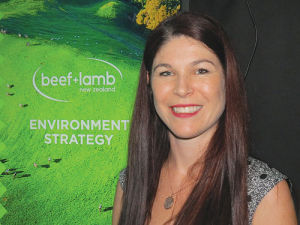Minister for the Environment David Parker has lavish praise for Beef + Lamb NZ’s new environmental strategy.
Parker applauds BLNZ’s leadership and welcomes its focus on stopping things getting worse and then improving them gradually.
That’s just what the public want, he says.
“They want to know you’ve got the environmental issues under control [then] there will be the social licence to work the settings over time,” Parker told Rural News. “They just don’t want things to be getting worse over time.”
BLNZ recently unveiled its new ‘blueprint to lift the environmental performance of NZ’s sheep and beef sector’ in Wellington. The strategy lays out a progressive long-term vision for four priority areas: healthy productive soils, thriving biodiversity, reducing carbon emissions and cleaner water.
BLNZ has two key goals: every sheep and beef farm having a tailored and active environment plan by the end of 2021; and the sheep and beef sector as a whole moving towards net carbon neutrality by 2050.
Over the next three years, BLNZ will roll out environmental initiatives to support sheep and beef farmers including Collaborative Catchment Communities – a programme to help communities work together to target water quality, greenhouse gas emissions, biodiversity and soil health issues.
Julia Beijeman, BLNZ’s environmental strategy manager, says the strategy addresses the huge change happening for sheep and beef farmers, who are under a lot of pressure in all sorts of areas.
“There is unprecedented concern about the natural environment, there are disruptive technologies, increasing legislation and all sorts of different things,” she told Rural News.
“But also farming is intergenerational and farmers want to ensure that what they doing today will mean they’re farming in perpetuity. So the environment strategy has been developed to turn all the pressures we are experiencing today into opportunities for the future and to retake an intergenerational approach to what we are doing and how we are looking after the land.”
Beijeman says BLNZ will play several roles, notably in providing tools to support farmers in putting together the plans.
She says from her experience, sheep and beef farmers deeply care about the environment and they understand they can’t have a sustainable business if they don’t care about the environment.



















